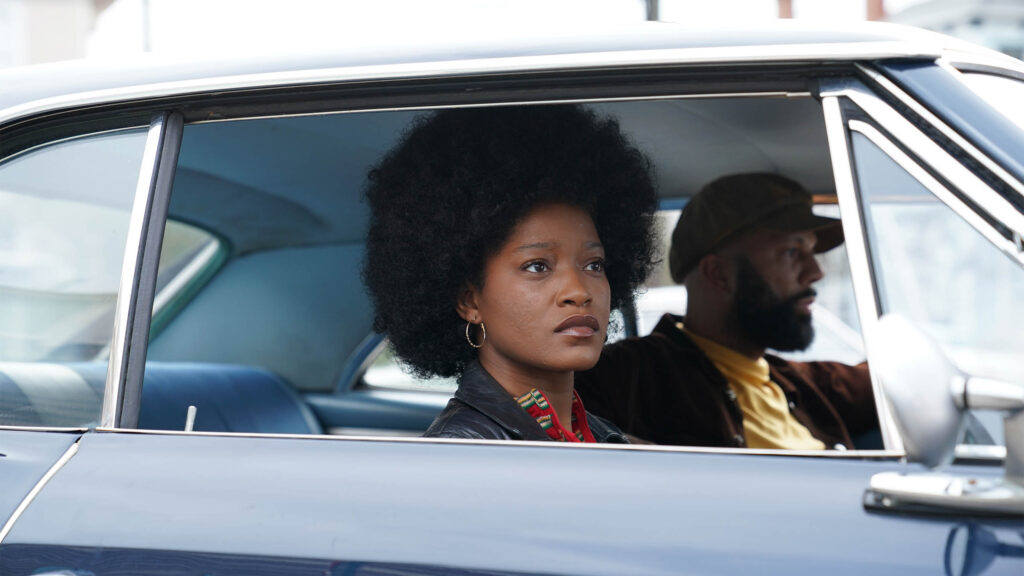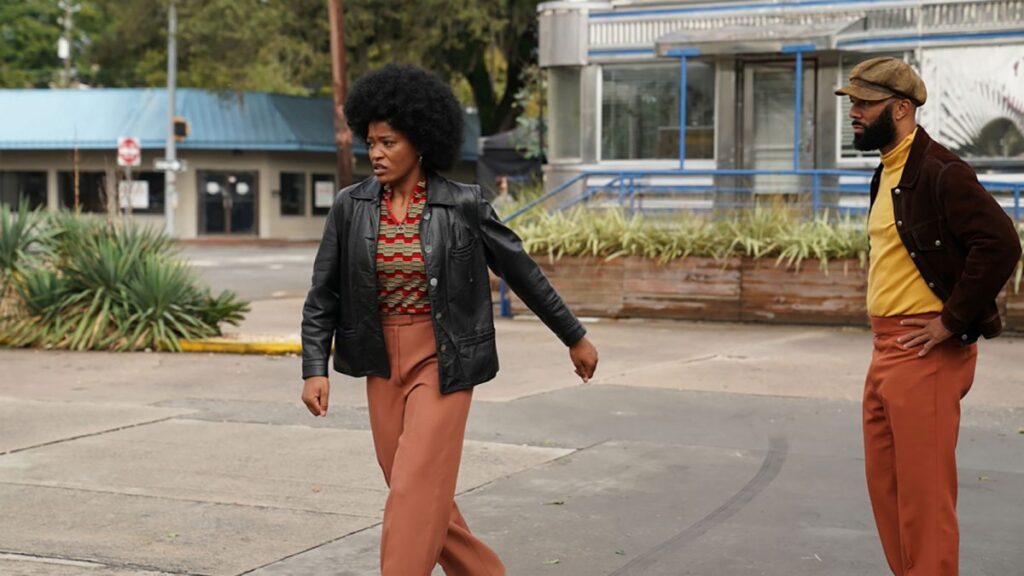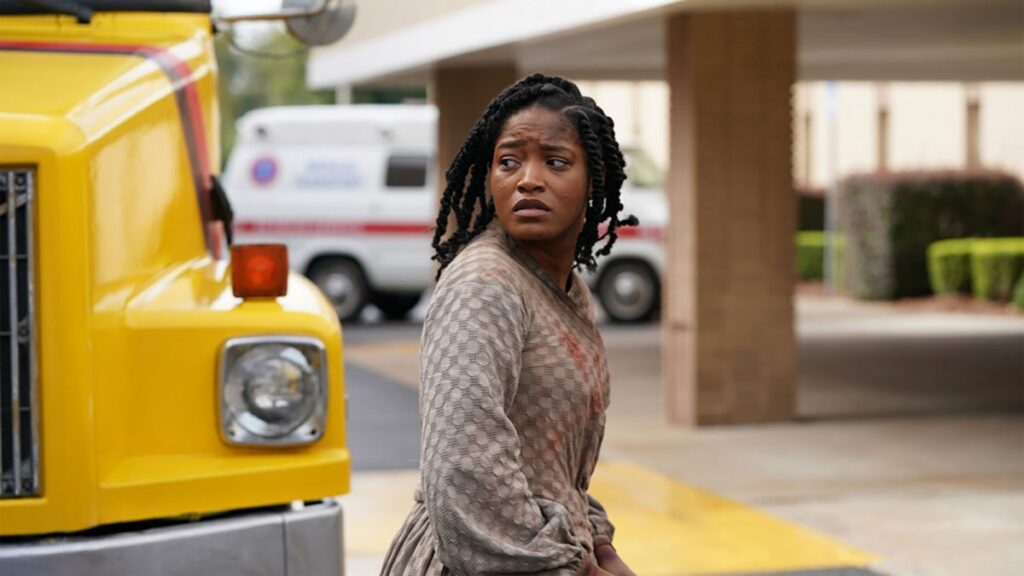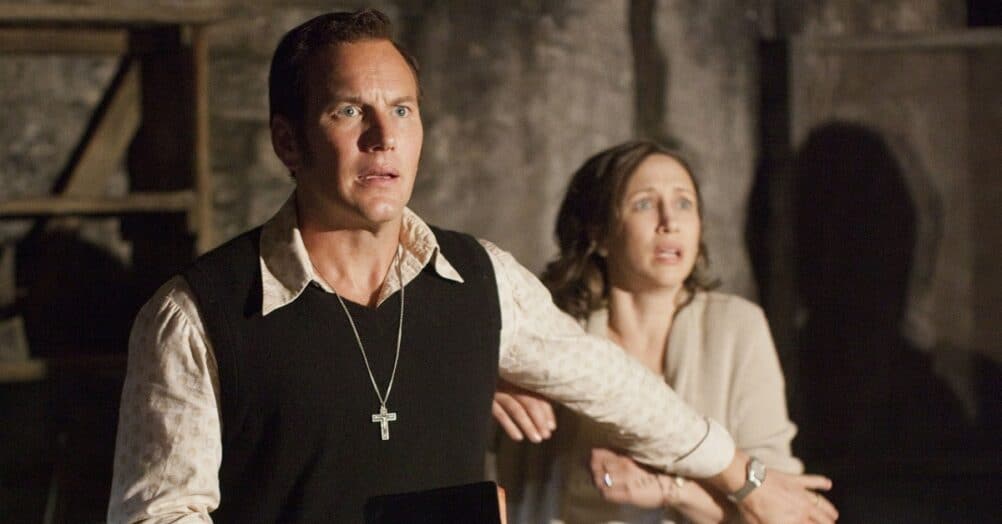Last Updated on March 29, 2022

PLOT: A slave in the antebellum South escapes from her secluded plantation only to discover a shocking reality that lies beyond the tree line.
REVIEW: Sometimes a film has the best intentions but doesn’t fully realize them. That is what happens with the directorial debut from Kystin Ver Linen, Alice. The persistent issue throughout the film is that the general premise is intriguing enough but none of it really comes together. This is all despite a showstopping performance from Keke Palmer, which is one of the only elements making the movie worthy of your time. The film is mostly tonally awkward, and it can’t quite find its footing.
When we meet Alice (Keke Palmer), she is enslaved, along with her family, on a 55-acre Georgia plantation owned by the evil Paul Bennett (Jonny Lee Miller). Alice has recently married Joseph (Gaius Charles, an actor who shares my VERY rare name), but Paul has plans to send him away. Alice is constantly trying to take in knowledge as books and reading become an outlet unless she’s forced to read aloud to Paul and service his needs. Joseph suggests that they escape, but the decision results in tragedy, causing Alice to embark on the journey alone. As she flees into the trees, she makes her way to a freeway where she discovers it’s 1973 and slavery has ended 100 years prior. While becoming accustomed to her new surroundings, Alice meets Frank (Common), a man who helps her plot to free her family that remains on the plantation.
Alice has some good ideas on paper, but it can’t help but get lost in cinematic stereotypes that plague most films that depict slavery. The slavery aspect takes up about 45 minutes of the runtime, and it plays like a greatest hits collection from other films that it almost sloppily tries to copy. There is a lack of authenticity to the scenes, and that is something that they needed to resonate for us to be fully invested in Alice’s journey.

Alice is two films that never quite connect. On the one hand, it wants to be a harrowing slave drama, but once Alice enters the “real world”, it wants to be a modern blaxploitation revenge film. I’m not saying these two-story ideas can’t work together, but Alice finds itself stuck between two modes of storytelling and ultimately doesn’t do justice to either. The film could’ve benefitted from an element of surprise but the major reveal of where Alice ends up and the true nature of how long the antebellum plantation has been running is revealed in the film’s promotional materials. Maybe it would be a tough sell without revealing that upfront, but you almost feel like dealing with the less compelling slavery moments becomes a chore before getting to the real meat of the story.
Alice also has issues with pacing. The film never quite finds its rhythm, including depicting Alice’s transformation from slave to a blaxploitation figure out to avenge her people. The events all take place over the course of a day, so we don’t really get to grow with Alice significantly. The change is so quick and jarring that it strips her transformation of any of its visceral power. We don’t get time to reconcile with any of her trauma or be overwhelmed by the new world she has found herself a part of.

None of this can be blamed on Keke Palmer, who navigates a very awkward story like a champ. Her performance grabs you from the moment she’s first on-screen, and you only pay more attention to her as the film moves along. She makes up for A LOT of the movie’s narrative issues, and she nearly single-handily overcomes them. If there is any curiosity about seeing Alice, you should do it to see Palmer engage the audience with a performance that proves she’s ready for more adult material.
As I watched Alice, I was reminded of the 2020 horror film Antebellum, which was torn between respecting history and thrusting the movie into a modern-day horror movie setting. I thought that film was messy in specific ways, but it ultimately leaned more into its genre tropes, allowing me to forgive some of its shortcomings. Alice is torn in half in a way that it never really recovers. As a slave drama, it’s stale, and it doesn’t lean into its exhilarating thriller/revenge film fantasies enough to work in that regard truly. The catharsis ends up being too rushed, preventing the movie from reaching the actual impact it so desperately wants to achieve.






















Follow the JOBLO MOVIE NETWORK
Follow us on YOUTUBE
Follow ARROW IN THE HEAD
Follow AITH on YOUTUBE